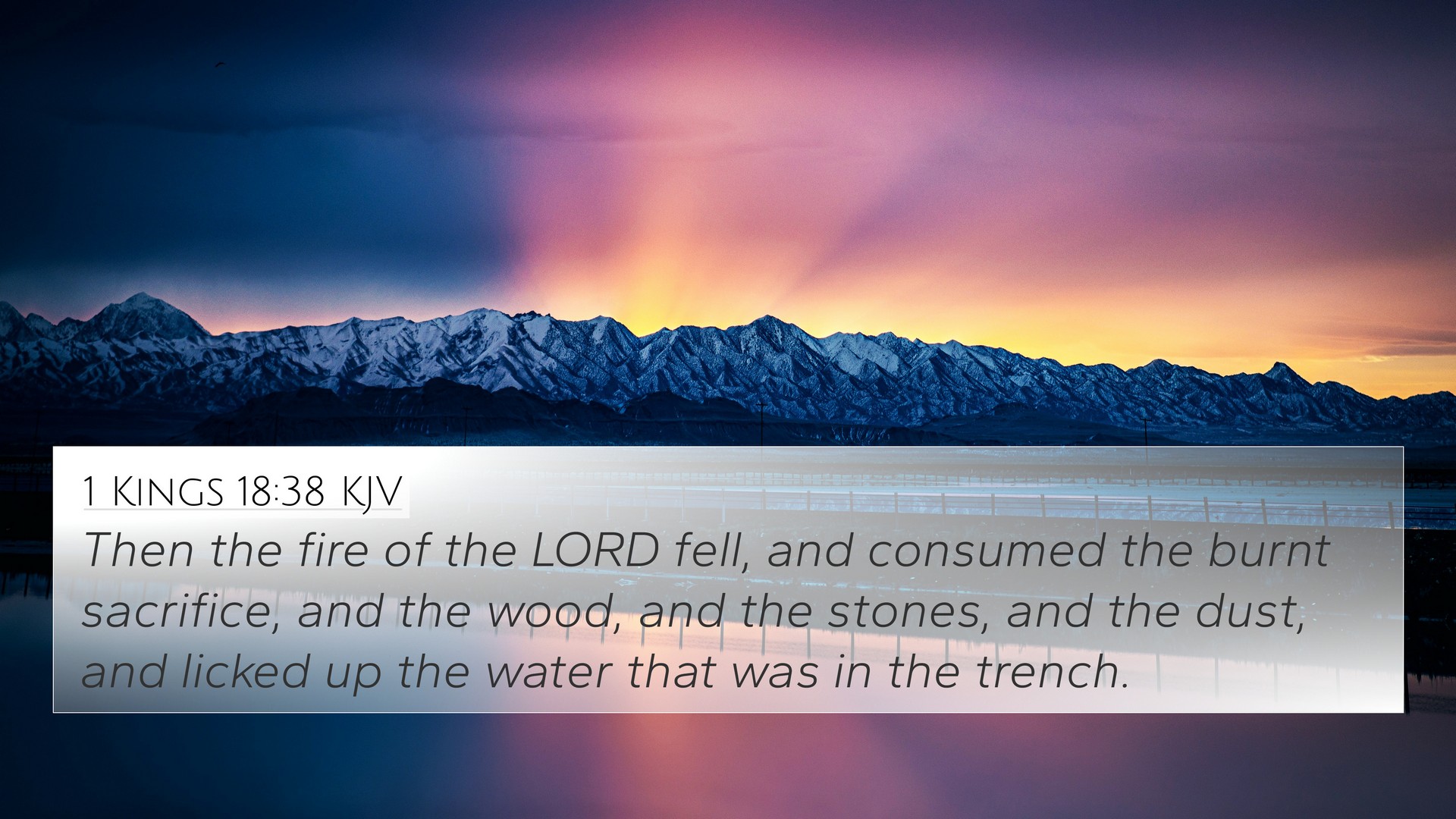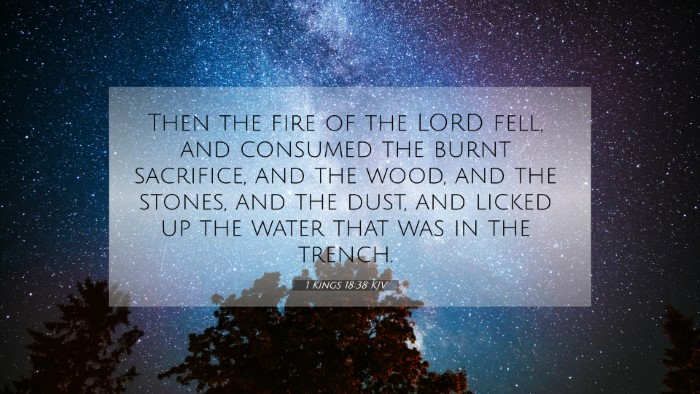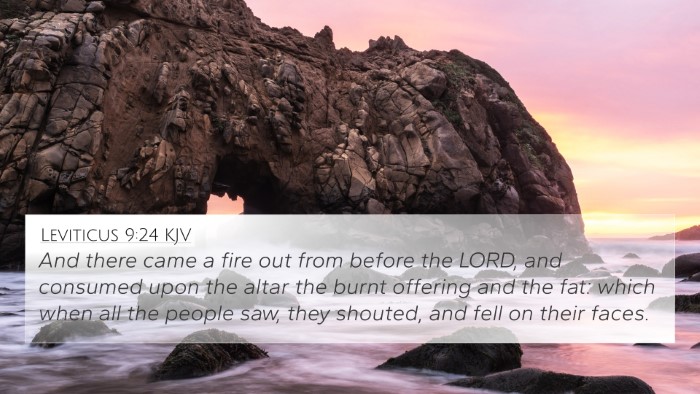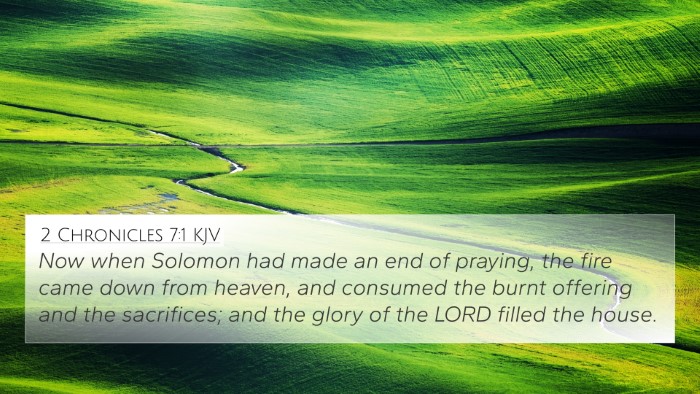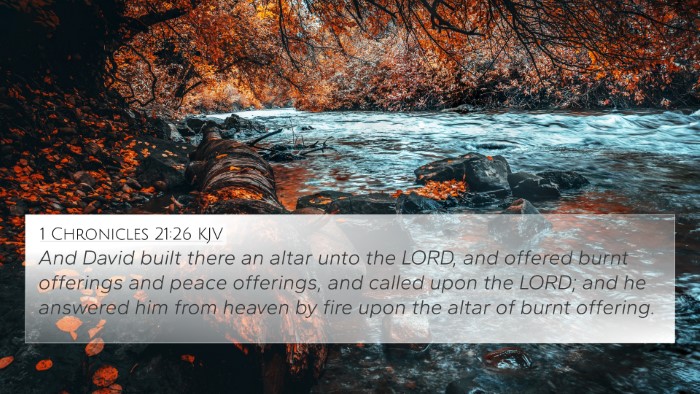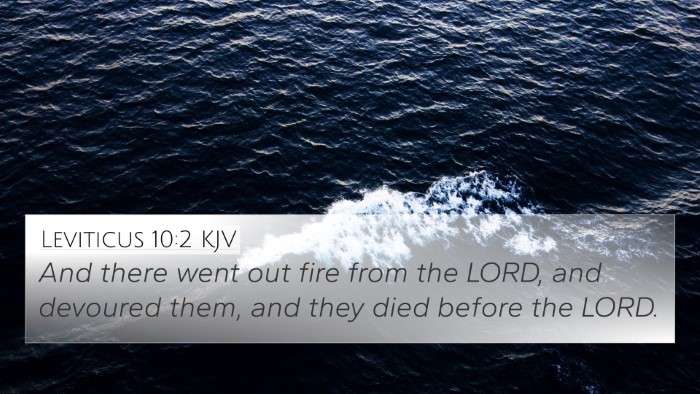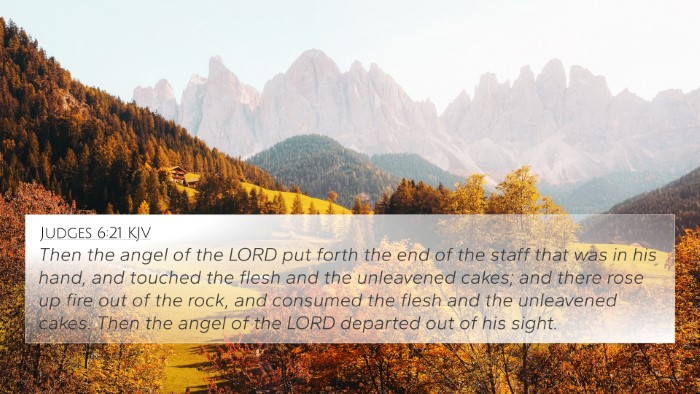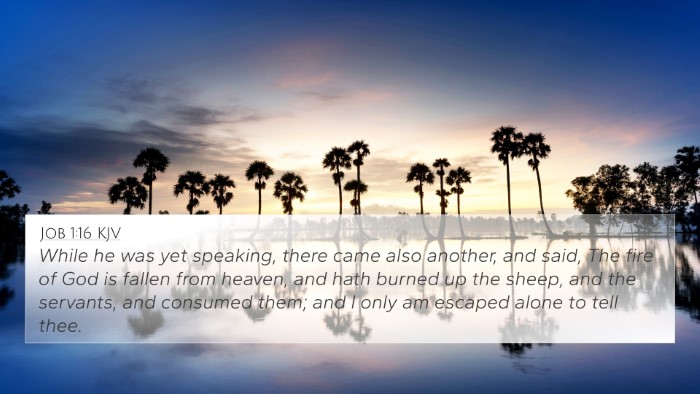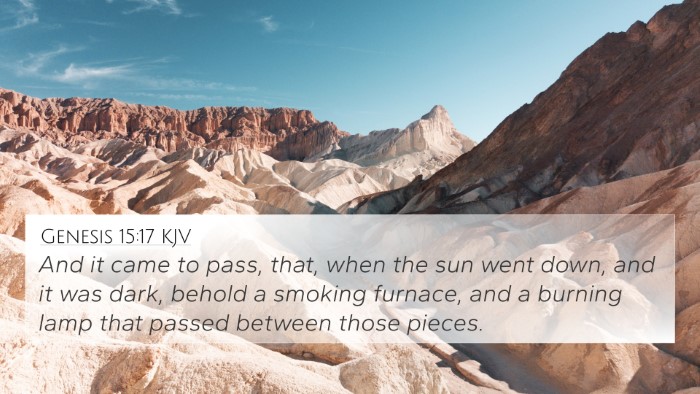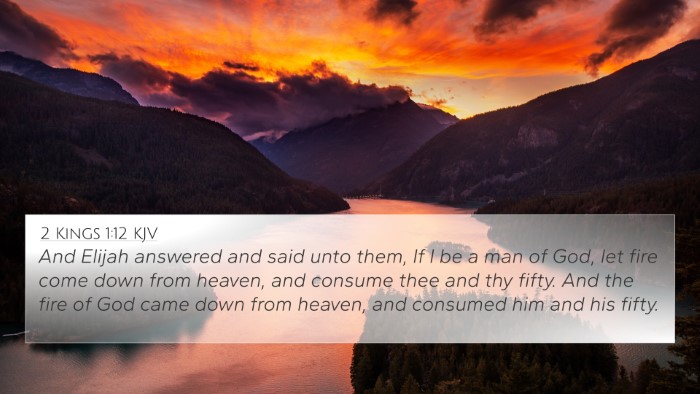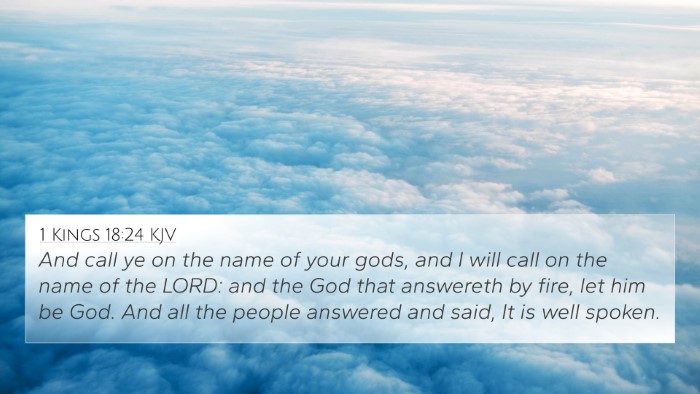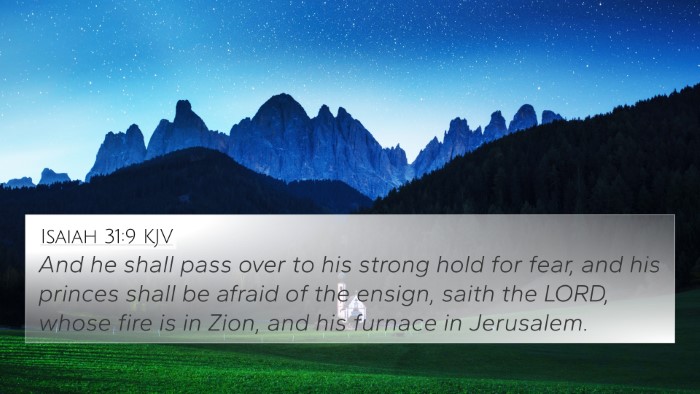Understanding 1 Kings 18:38
Verse: "Then the fire of the LORD fell and consumed the burnt sacrifice, and the wood, and the stones, and the dust, and licked up the water that was in the trench." (1 Kings 18:38)
Overview
This verse is a pivotal moment in the story of Elijah and the prophets of Baal on Mount Carmel. It illustrates God's power and authority as He responds to Elijah's challenge, revealing Himself as the true God of Israel. The miraculous fire signifies divine approval and the futility of idol worship.
Commentary Insights
- Matthew Henry: In his commentary, Matthew Henry emphasizes God's might in sending fire from heaven, which consumed everything utterly. He underscores that the fire represents God's acceptance of Elijah's sacrifice and a direct challenge to Baal's supposed power.
- Albert Barnes: Barnes discusses the significance of the fire. He notes that this act was not only a demonstration of God's power but also a means of turning the hearts of the Israelites back to Him, showcasing the futility of the natural elements compared to divine intervention.
- Adam Clarke: Clarke highlights the thoroughness of God's response, mentioning how it consumed not just the sacrifice but everything present, signifying that God's power is exceeding all limits. He also indicates this event's role in restoring faith among the people.
Theological Implications
1 Kings 18:38 serves as a clear delineation between the true worship of God and the false worship of idols. The chapter as a whole is rich with themes of faith, obedience, and divine sovereignty.
This event demonstrates that God acts decisively in favor of His people, revealing His character as loving yet just. It illustrates the concept of atonement through sacrifice—where God accepts the offering presented through faith.
Cross-References
In exploring the connections between Bible verses, we find several passages that resonate with the themes found in 1 Kings 18:38:
- Exodus 3:2: The burning bush symbolizes God’s presence in fire, showing His holiness and power.
- Leviticus 9:24: God sent fire to consume the offerings made by Aaron, paralleling Elijah's experience.
- 2 Chronicles 7:1: Similar to Elijah’s sacrifice, God's glory filled the temple when fire came down from heaven.
- Hebrews 12:29: "For our God is a consuming fire," reflecting God's nature and holiness.
- James 5:17-18: References Elijah's prayer for rain, highlighting the connection to his faith-driven actions.
- John 1:12-13: Emphasizes the theme of divine acceptance and rebirth through faith.
- Romans 12:1: The call for believers to present their bodies as living sacrifices, akin to Elijah's offering.
- Matthew 3:11: John the Baptist’s remarks on the baptism of fire, linking to purification.
- Hebrews 11:32-34: Highlights faith in action, with Elijah as a significant figure among the faithful.
Practical Application
Understanding the depth of 1 Kings 18:38 encourages believers to reflect on their own spiritual sacrifices and the nature of their worship. It challenges individuals to examine whom they truly serve and the legitimacy of their faith practices.
This verse invites readers to trust in God's ability to act powerfully even in seemingly impossible situations, reinforcing the idea that genuine faith can yield extraordinary results.
Conclusion
1 Kings 18:38 stands as a dramatic reminder of God's sovereignty and the necessity of true worship. By studying this verse and its cross-references, believers can deepen their understanding of scriptural themes and their connections, enhancing their knowledge of God's active role in history and in their personal lives.
Further Study Suggestions
- Examine the surrounding chapters in 1 Kings for a contextual understanding of Elijah's ministry.
- Utilize a Bible concordance to find additional verses that speak to the themes of worship and sacrifice.
- Engage in a cross-reference Bible study to discover how this event foreshadows New Testament truths.
- Explore the thematic Bible verse connections related to faith, fire, and divine intervention.
- Consider how this passage relates to the larger narrative of Israel's history and prophetic literature.
